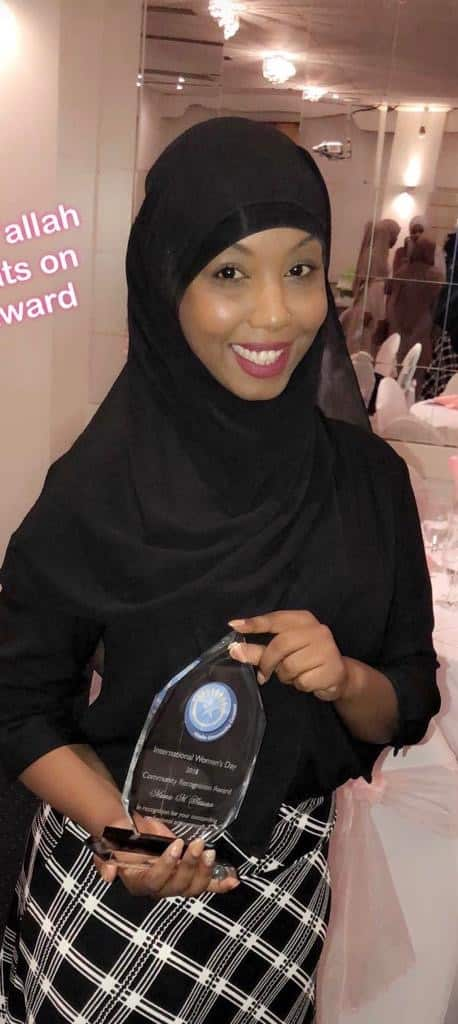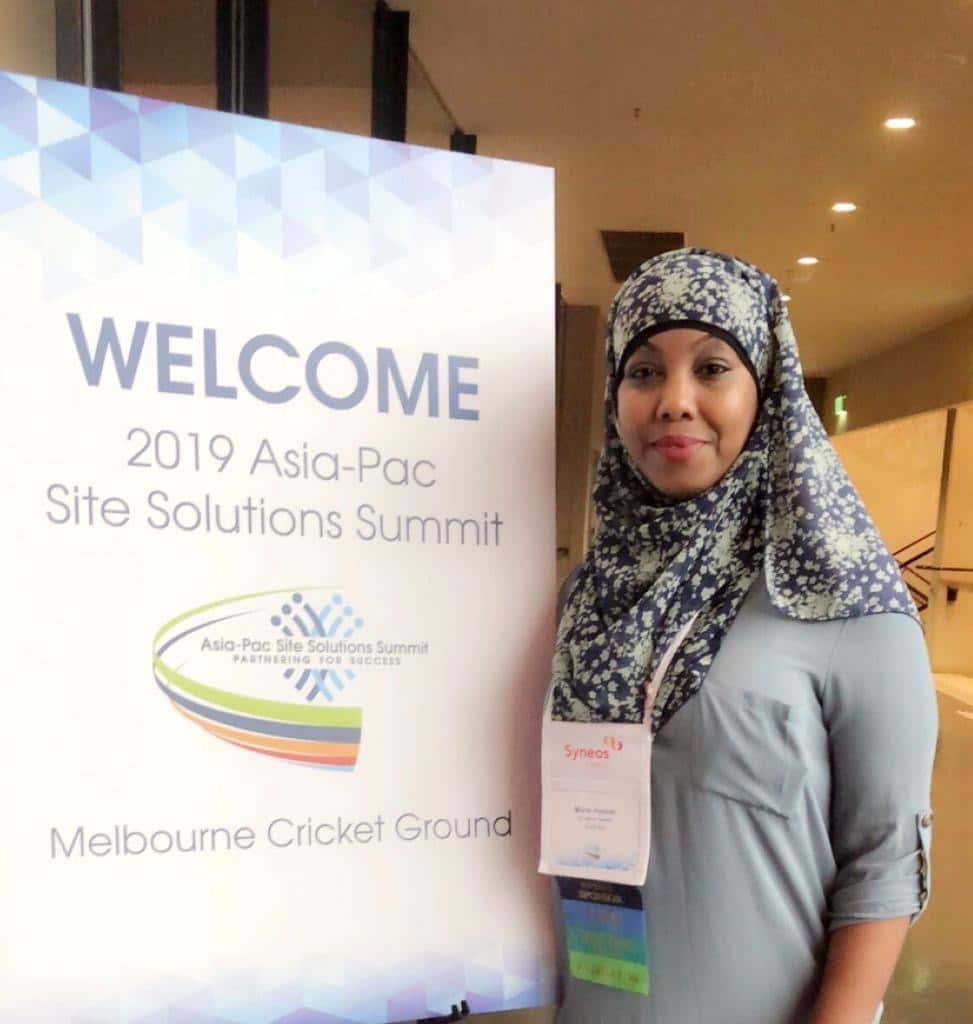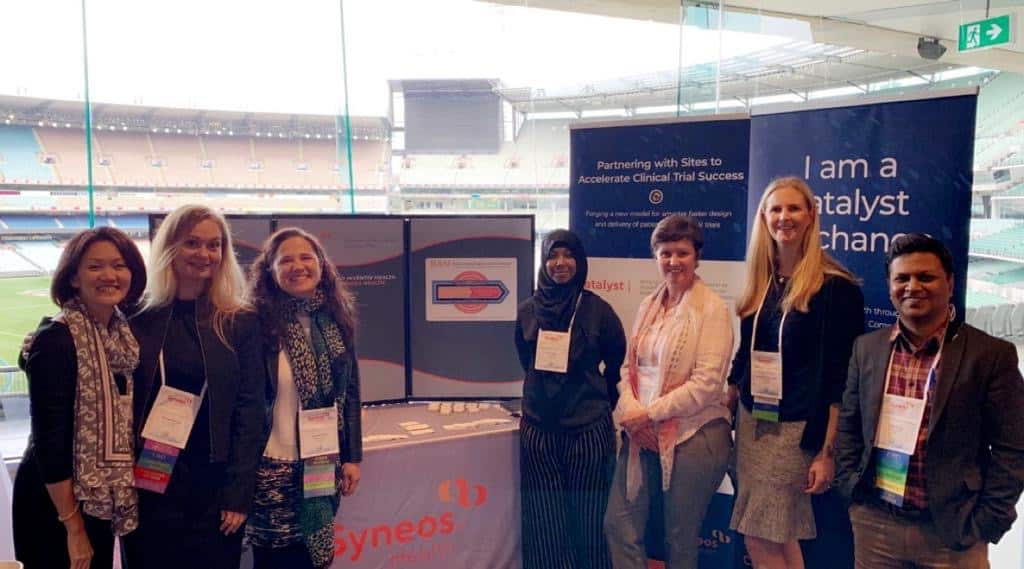With a Bachelor's degree and a Double Masters from La Trobe University in public health and health administration under her belt, Muna Hassan is a career-driven young Muslim woman.
Ms Hassan arrived in Australia with her parents from Somalia when she was six-years-old.
Growing up in Melbourne, she developed a particular fondness for science, including "biology, humans, muscles, tissues, organism, dissecting of mice".
But along her path she has encountered obstacles, juggling the traditional ways of her family who want her to get married, as well as negative perceptions of Muslim women in the wider society.
Fighting community attitudes
Ms Hassan's passion for science wasn’t supported by her family, who questioned her career path.
She recalls that her father was worried about job prospects for his daughter as she pursued her dream in pharmaceutical science, and instead wanted her to study in a more "traditional" field like nursing.
She believes that her family's concerns were based on the fear of the unknown.
I think it was fear of being around whites, academics, white professionals, possibly as nursing is more of a multicultural industry but their perception of pharmaceutical was a white only industry.

Ms Hassan says that these attitudes are reflective of her community’s “mentality” which tends to isolate and seclude themselves, and only feel comfortable around their own kind. But she was determined to prove them wrong.
She was repeatedly warned that she would not be able to cope.
“I was told, you are a woman, a Hijabi, a black, and how would you fit into the wider society? There will be discrimination, you will face backlash and bullying.”
Muslim women stereotype
After a decade in the Pharmaceutical industry, Ms Hassan has grown confident and finds it easier to establish good relationships at her work.
However, she admits that she has been subjected to unflattering comments in her workplace.
"I have been called 'exotic' before, because of my appearance, I don’t take those comments as an offense, I just brushed them off, because for me it’s just shocking to their system. They're only used to seeing only their 'own' people, not a migrant or someone different to them, so I just smile and give response I can give and keep moving."
As a professional Muslim woman, she is fighting two fronts, her family's traditional expectations on one hand, and stereotypes of Muslim women in the wider society on the other.

She believes there are negative perceptions of Muslim women in Australia.
"I think there is [a negative perception], because as you know what the media shows you is what the people will perceive, first ask questions rather than making assumptions. It’s just that we are different to them, possibly the way we dress.”
She admits her community’s attitude to women’s roles may inadvertently perpetuate that stereotype of Muslim women.
Misconception about Muslim women in the wider society is ‘Uneducated housewife, if she is wearing Hijab it’s the husband who forced her to wear the Hijab, very much it’s the man who controls her' and that is not the case.
As part of her job, she often travels both interstate and overseas, but family members are constantly concerned about her safety. She confesses that this fear is the result of her diverting from culturally set societal-norms for women.
I think we have this culture that the women’s place is in the home, and to carry on just like the prior generation, your grandmothers, your mothers are how you should be.
The pressure to get married
Now in her early 30s, Muna says pressure to tie the knot has been building up over many years, but she has been able to use her education and career as a way to deflect the question of marriage. Muna has decided when the right time comes and she meets the right person comes along, only then she'll consider getting married.
“So once I finished university, getting the career and work, the first question was, 'When are you getting married?',” she recalls.
Although she doesn’t quite understand why some men are intimidated by well-educated women like her, but she suspects some may prefer a stay-at-home wife. That won't be an option she would consider for practical reasons.
“In this day and age to stay at home doesn’t work for a family... I feel it’s better to get two incomes in the household rather than one,” she explains.

Arranged marriages aren't uncommon in the Somali community, and Muna hasn’t completely ruled out the idea. However, she wants to be in control over whom she ends up spending the rest of her life with.
“I would still check the guy out, I will still make sure that we are compatible,” insists Muna.
What Muna wouldn’t accept though, is the traditionally defined gender roles for men and women.
"If it comes down to, 'You are the women, you do the household duties', whether it is cooking, cleaning, that kind of mentality, that is something that I wouldn’t accept,” she says.
As a woman with a career, Muna expects her future husband to able to help her and contribute equally in running the household.
"If I am at work if he does come home before me, at least try to put something on the stove.”
Despite battling both the traditional ways of her Somali community, as well as the stereotypes of wider society towards Muslims, Muna says as a Muslim woman she is comfortable in her own skin, both at a personal and professional levels.
"I am working, I am happy where I am, supporting my family and I am where I am meant to be... My career gives me my identity, marriage or home is an identity but that is not all you strive for."
Muna is also currently the President of SomaliPN-Australia and Vice President for SomaliPM-Global Admin, an organisation that mentors, supports and gives guidance to young professionals from the community, and inspires others to achieve their goals in life.
